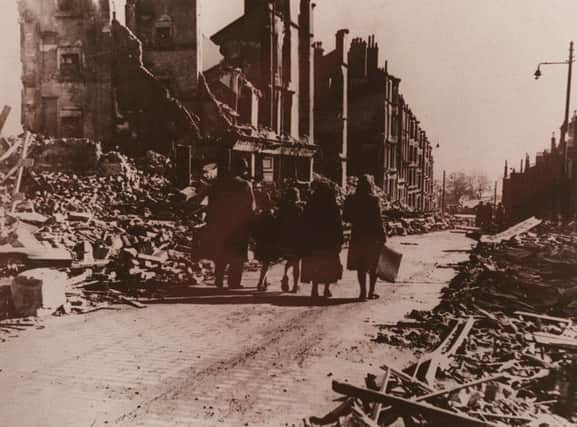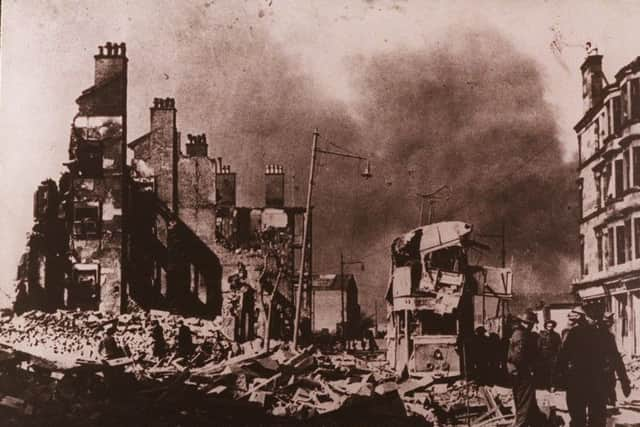Poll finds few Scots know story of German bombing raids


On the evening of May 10, 1941 - 75 years ago today - Nazi planes carried out the single most aggressive bombing campaign ever to hit the British mainland.
The calamitous evening became known as the Longest Night and was once a cornerstone of World War Two history taught in schools.
Advertisement
Hide AdAdvertisement
Hide AdBut a new opinion poll suggests that just 36 per cent of Scots can now correctly identify what happened on the Longest Night, with a majority believing that the name signifies the annual winter solstice on December 21.


The research by armed forces charity SSAFA also revealed nearly 20 per cent were also thought Elizabeth II was head of state during the six-year conflict.
Close to 20 per cent of those surveyed in Scotland believe it was Winston Churchill, not Adolf Hitler, who masterminded the attack.
Four per cent of Scots singled out John F Kennedy as having coordinated the campaign, with a further three per cent believing that George W Bush was behind The Longest Night.
The raid was the climax of a bombing campaign by Nazi Germany which caused misery and destruction across the UK.


“It’s a shame that so many people across the UK seem to have very limited knowledge of such an important part of British history,” said David Murray, SSAFA chief executive
“Educating our young people about the history of their country is so important, especially since many may have relatives who fought in the Second World War.”
Advertisement
Hide AdAdvertisement
Hide AdDuring the air war in Scotland some 2500 people died and more than 8000 were injured.
Peterhead was the most bombed settlement north of the border, being subjected 28 seperate raids.
The shipbuilding hub of Clydebank suffered the greatest loss of life in one raid when 236 German planes killed 500 in the town on the nights of March 13 and 14, 1941.
A further 800 were killed in the Greater Glasgow area as the Luftwaffe was forced to drop bombs prematurely after being forced to retreat by the RAF.
Greenock was also devastated during a raid in May 1941 which left 250 dead.
The first civilian victim of the war in Britain was James Isbister, who was killed in a German air raid on Orkney on March 16, 1940.